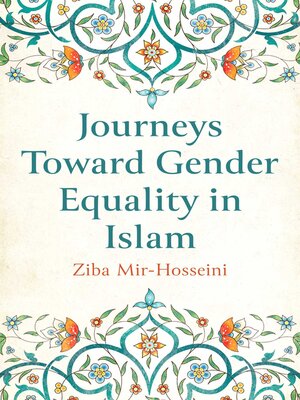
Sign up to save your library
With an OverDrive account, you can save your favorite libraries for at-a-glance information about availability. Find out more about OverDrive accounts.
Find this title in Libby, the library reading app by OverDrive.



Search for a digital library with this title
Title found at these libraries:
| Library Name | Distance |
|---|---|
| Loading... |
If justice is an intrinsic value in Islam, why have women been treated as second-class citizens in Islamic legal tradition?
Today, the idea of gender equality, inherent to contemporary conceptions of justice, presents a challenge to established, patriarchal interpretations of Shari'a. In thought-provoking discussions with six influential Muslim intellectuals – Abdullahi An-Na'im, Amina Wadud, Asma Lamrabet, Khaled Abou El Fadl, Mohsen Kadivar and Sedigheh Vasmaghi – Ziba Mir-Hosseini explores how egalitarian gender laws might be constructed from within the Islamic legal framework.
Today, the idea of gender equality, inherent to contemporary conceptions of justice, presents a challenge to established, patriarchal interpretations of Shari'a. In thought-provoking discussions with six influential Muslim intellectuals – Abdullahi An-Na'im, Amina Wadud, Asma Lamrabet, Khaled Abou El Fadl, Mohsen Kadivar and Sedigheh Vasmaghi – Ziba Mir-Hosseini explores how egalitarian gender laws might be constructed from within the Islamic legal framework.







